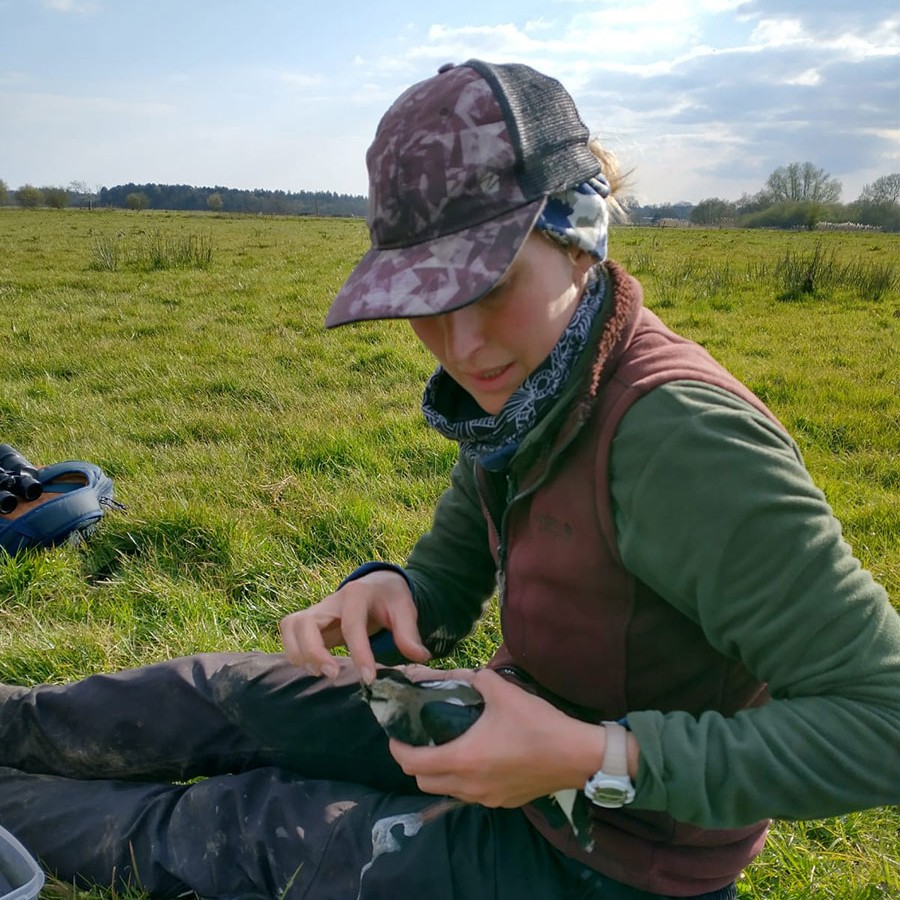
This International Women’s Day (8 March), the GWCT, is highlighting the contribution of women to science and land-based careers, where they have been traditionally under-represented.
We have come a long way since 1913, when International Women’s Day was first marked, yet it was recently estimated that it will take another 108 years to reach gender parity (WEF Global Gender Gap Report 2018). Women make up only a third of the scientific workforce in Europe, while just 17% of UK farmers are female. But the future looks bright. Female students enrolling in agriculture-related higher education now outnumber male. Between 2011 and 2020, the number of women accepted onto UK STEM (science, technology, engineering and maths) undergraduate courses increased by 50.1%.
The GWCT, which conducts conservation research and works with farmers and land managers to boost biodiversity in the British countryside, is led by Chief Executive Teresa Dent CBE. Teresa’s contribution to wildlife conservation was recognised with the award of a CBE by HM The Queen in 2015. As she marks 20 years in charge, she is one of many talented women making a difference to wildlife at the GWCT.
“I think women are well-represented in science now,” says Teresa. “But in the land-based sector there are still relatively few women farm managers and even fewer gamekeepers. The rural sector has a longer path to travel in this respect; it should not be resting on its laurels.”
In her early career, Teresa found herself as the first female farming consultant at her firm, then the first female partner. On her path to leading an internationally renowned conservation organisation, Teresa says: “I come from a generation where there were very few women on the professional side of business,. But I have been very supported in my career and been helped to move up the ladder. And I believe in supporting and helping other women to do the same.”
Women are well-represented in roles ranging from scientific research to farmland biodiversity advisor, communications, fundraising and finance at the GWCT. The Trust also offers placements to around 20 undergraduate, masters and postgraduate students each year from disciplines such as ecology, conservation and IT-related degrees.
Lizzie Grayshon is a wetlands ecologist working with land managers in the Lower Avon Valley in Hampshire, to improve habitat conditions, manage predation and monitor breeding success of threatened wading birds such as lapwing and redshank.
Lizzie, who has been with the GWCT since 2015, says: “I love the variety of my job; there is a great mix of field work, office work and working with different people. I get to work directly with a great group of farmers and gamekeepers where we can input conservation actions directly into a nationally important area for waders.”
Julie Ewald, who is originally from north-east Nebraska, USA, is head of the Trust’s Geographical Information Services – applying mapping and statistical analysis to better understand the ecology of grey partridge, arable flora and fauna, and using it to provide practical support and conservation advice to farmers and gamekeepers.
“I love using data to help provide solutions to problems – that includes not only statistical analysis but also looking at solutions at a landscape scale using maps,” says Julie.
In GWCT Scotland’s Lowlands team, Fiona Torrance works on the Grey Partridge Recovery Project, carrying out partridge and other farmland wildlife monitoring, and providing advice to the farmers and keepers on establishing habitat such as hedges, wild bird seed and pollinator mixes.
“I love my job,” says Fiona. “Most people watch birds as a hobby, but I am lucky enough to get to watch birds for my job. And I love to see the results of our work, such as when a few hundred linnets visited our Balgonie demonstration farm this winter to enjoy a specially sown seed mix.”
Fiona’s advice to women looking to enter the conservation sector is: “Keep knocking on the door. It’s competitive and most jobs are over-subscribed. Volunteer for things like bird-ringing to get experience and build your network, as who you know can make a difference.”
GWCT fisheries scientist Céline Artero works with the GWCT Fisheries team based on the River Frome in Dorset, investigating the decline of the Atlantic salmon. She tracks young and adult fish during their migration from freshwater to the sea, investigating their behaviour, migration routes and mortality.
“I am a researcher because I love discovering, understanding more about how nature and biodiversity is working,” says Céline, who originally comes from France.
It is important to Céline to see the application of her research. “I need my discoveries to be associated with some practical action to protect and conserve aquatic biodiversity,” she says. “Increasing the knowledge on fish ecology allows humans to adapt their activities, such as fishing, aquatic construction and development, and reduce their impacts on the fish population.”
The GWCT is running a series of interviews with other women making a difference to British wildlife. These can be found at gwct.org.uk/IWD2022
For more information on student opportunities at the GWCT please visit gwct.org.uk/about/student-opportunities/
